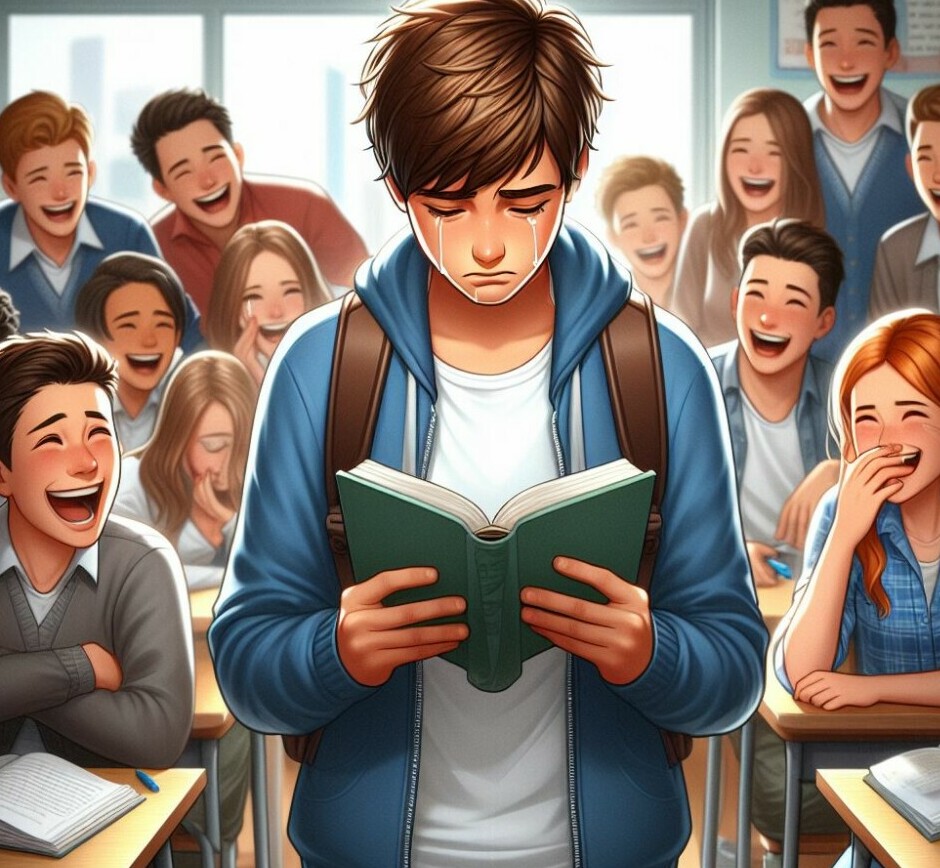We have spoken a lot about the signs of dyslexia and how it affects reading, writing, and school. Now, we must dive into how dyslexia affects the emotional side of our children. For instance, I remember my daughter feeling as though she was broken, consistently battling with not feeling good enough because of the challenges dyslexia brought into her life.
Dyslexia is not just a learning difficulty; it’s a multifaceted condition that deeply impacts a child’s emotional well-being. As we explore this emotional terrain, it’s important to acknowledge the ways this condition intertwines with a child’s feelings and self-image. Often, these kids face a daily internal struggle that many of their peers might not see or understand.
This is more than the challenge of decoding words; it’s also about the internal narratives our children are crafting about their abilities and worth. The importance of addressing these emotional facets cannot be overstated. By doing so, we open up pathways to foster resilience, compassion, and genuine understanding that can help children navigate through life’s challenges with greater confidence and less distress.
I strongly advocate for a supportive approach that attends not only to the academic hurdles dyslexic children face but also to their emotional journeys. In fact, providing this dual focus is crucial for their overall development and long-term well-being.
Beyond the Letters: The Hidden Struggles

Beyond the signs of dyslexia and how it affects reading, writing, and school, there are more personal and less visible battles that children encounter. Dyslexia isn’t only a challenge in the classroom; its reverberations are felt in nearly every facet of a child’s life.
In my experience, kids with dyslexia often feel like they’re carrying a weight that their friends don’t have to. It goes beyond the frustration of decoding words—it’s about not being able to express their understanding as quickly or fluently as their classmates. Their intelligence is frequently masked by the struggle to communicate in conventional ways.
I recall the moment my daughter told me she felt ‘broken’. She couldn’t understand why words, which seemed to dance effortlessly for her peers, became tangled hurdles in her own mind. This wasn’t just about reading aloud in class; it was a daily confrontation with her self-esteem, a quiet question of her own adequacy whispering in the back of her mind.
And it’s not only the academics. Imagine a typical school day—peer conversations are laced with references to texts, notes, or the written wit that just went viral on social media. For a child with dyslexia, such simple exchanges can be a minefield, reinforcing a sense of alienation and sparking an internal narrative of failure and difference. I am thankful that my daughter seems to be over this hurdle now.
You see, when we talk about dyslexia, we must also grapple with the social and emotional labyrinth these children navigate. The challenge is to recognize these silent struggles and to ensure they’re never fighting them alone.
Navigating the Social Labyrinth with Dyslexia

A dyslexic child’s struggles does not stop at the classroom door. They extend into the playground, the lunchroom, and social spaces where peer interactions become paramount. Children with dyslexia can feel lost in the social setting, where reading and writing smoothly are often taken for granted.
The way dyslexia intertwines with social relationships is complex. It’s not unusual for children with dyslexia to feel on the outside looking in, as if there’s a wall between them and their peers. When group activities involve reading or quick verbal responses, the struggle to participate can leave them feeling exposed and vulnerable.
These challenges can unfortunately make dyslexic children targets for teasing or bullying. Such experiences are damaging, undermining trust in peers and contributing to a sense of isolation. This isn’t just about hurt feelings; it’s about the deep-seated fear of being perceived as different or less capable.
In my opinion, it’s essential to foster an inclusive environment that builds social bridges rather than walls. Schools and communities can cultivate social skills workshops, peer mentoring, and other integrative activities. These approaches can nurture understanding and compassion among peers, while allowing children with dyslexia to engage without the constant pressure of reading and writing.
In fostering these supportive connections, we are not just helping children withstand the trials of dyslexia; we’re empowering them to thrive despite them.
Fostering Hope: Tools for Resilience

So my question to you today is, how do we equip our dyslexic children to face their daily challenges head-on? It starts with resilience. Kids need to learn that stumbling in reading or writing isn’t a measure of their worth or potential. My daughter did, and you can bet she’s not alone.
If you want to help your child handle the emotional ups and downs, focus on a toolkit of coping mechanisms. Encourage them to express their feelings, whether it’s through art, music, or conversation. Teach them to set small, achievable goals, so they experience success regularly. For example, my daughter is into art and dance.
Don’t stress about occasional setbacks. They’re part of the journey. Instead, emphasize growth over time and adapt strategies as needed. Your consistent support and reassurance are instrumental in helping them navigate through rough patches.
Remember, you’re not in this alone. Schools, therapists, and support groups can play a massive role in your child’s life. These support systems can’t be overstated – they provide essential guidance and a sense of community.
And finally, celebrate every victory, every progress. When a child with dyslexia recognizes their achievements, it does wonders for their self-esteem. This could be anything from mastering a new word to standing up in front of the class to share a story. Remind them that there a very famous and successful persons who are dyslexic.
In conclusion, addressing the emotional well-being of dyslexic children is as crucial as helping them overcome academic hurdles. With the right tools for resilience, a strong support network, and a focus on their strengths, these incredible kids can thrive emotionally and academically. I really hope that this article helps you see the full picture and provides you with the means to uplift and empower your child every step of the way. Please feel free to share your thoughts and experience below.
Dee_J.


Dee_J., thank you for sharing this insightful and heartfelt article about the emotional impact of dyslexia on children. You have a deep understanding of the multifaceted challenges these children face, both academically and emotionally. Your anecdotes and reflections genuinely bring to light the internal struggles and silent battles that dyslexic children endure daily.
Your emphasis on addressing the emotional well-being of dyslexic children is incredibly poignant. Too often, the focus is solely on academic interventions, overlooking the profound impact that dyslexia can have on a child’s self-esteem and sense of worth. By shining a light on these hidden struggles, you’re helping to foster greater awareness and empathy for dyslexic individuals and their experiences.
I particularly appreciate your emphasis on resilience and the toolkit of coping mechanisms that can empower dyslexic children to navigate through their challenges with confidence and strength. Your suggestions for setting achievable goals, expressing feelings through creative outlets, and celebrating every victory are invaluable reminders of the power of positivity and support in overcoming adversity.
Overall, your article serves as a beacon of hope and empowerment for parents and caregivers of dyslexic children. By acknowledging the emotional complexities of dyslexia and offering constructive support strategies, you’re providing a roadmap for fostering resilience and nurturing the emotional well-being of these incredible kids. Thank you for your invaluable contribution to this important conversation.
Keep up the great work in keeping us informed!
Hi Severen.
Thank you for your kind comments, it is truly appreciated.
The experience comes solely from walking this road with my dyslexic daughter. It continues to be a struggle and we learn more and more every day – together. She is now a teenager and is coping so much better than when we just got her diagnosis. It seriously is a silent struggle and affects one’s self-esteem.
Thank you for taking the time to read.
Dee_J.